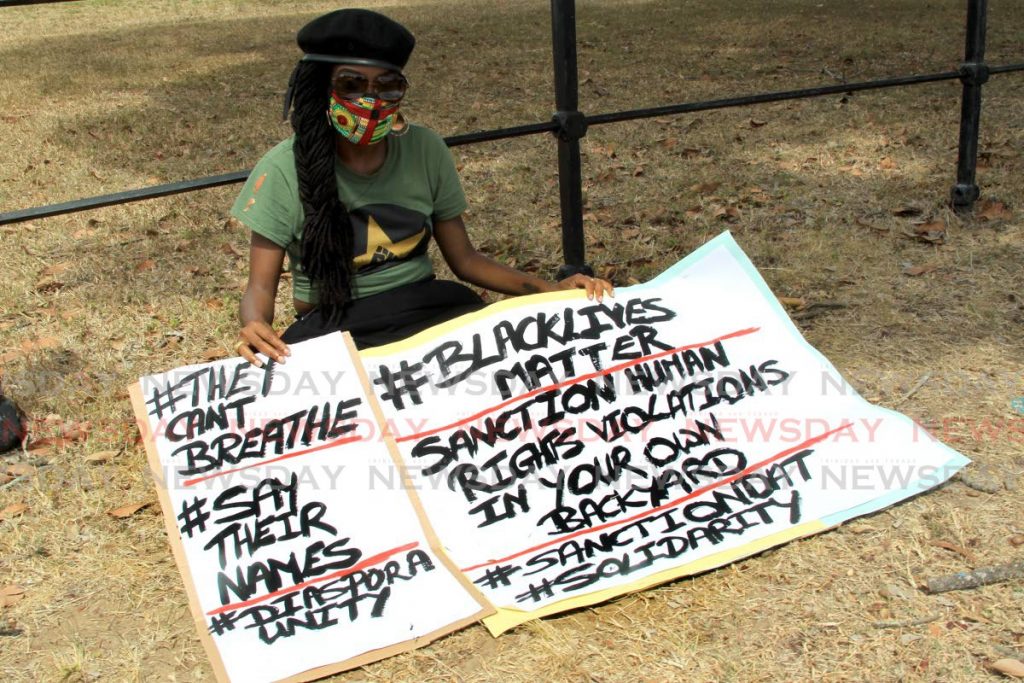Racial tension costs lives, growth: here’s how we fix it

kmmpub@gmail.com
Did you watch the video of George Floyd’s killing? Did you feel shocked, angry and sad? You can do something about it. The single most effective way to improve racial justice and race relations is to advocate for faster courts. This will make society not just fairer but richer.
Beyond basic human empathy, George Floyd’s death resonates because he could have been any one of us, our family or friend. It also resonates because we feel injustice at home, though our racial dynamic is very different.
The story has almost become tired in its retelling. A legacy of exploitation. Then oil and gas, and ethnic fights over cash and recognition. Growth driven not by productivity but resource extraction. A zero-sum environment that has encouraged the lowest level of interpersonal trust in the world (3.4 per cent, according to the World Values Survey).
I don’t need to remind anyone of the human cost of racism and ethnic competition. But fewer people have spoken about its economic costs – to the discriminator as well as the one being discriminated against.
In our low-trust environment, people turn to their own tribe when hiring and promoting or selecting leaders. We gain immediate comfort by trusting “our own” instead of another ethnic group. And in politics and in wider society, we trust our ethnic group to fight for us in government.
But this backfires in the long term. As economist Gary Becker illustrated back in 1957, if the wages of discriminated-against people are, for example, 25 per cent lower than others because people won’t hire them, businesses can actually make more profits and muscle out racist competition by hiring more discriminated-against workers. In the long run, ethnically biased firms leave money on the table.
This makes them riskier. Harvard professor Devah Pager and her colleagues have found that firms that discriminate on the basis of race or ethnicity in hiring are almost twice as likely to go bust: “discrimination may or may not be a direct cause of business failure, but it seems to be a reliable indicator of failure to come.” Ethnic divisions make our economy creakier and slow growth.
George Floyd’s death is a wake-up call heard around the world. Racist and tribal biases are squeezing the breath out of our society and our economy. We must act.
To tackle the ugliness of racial and ethnic tensions, we must use the dullest sounding yet most effective means: improving contract enforcement. Not a slogan people will spray-paint any time soon, but the best tool we have right now.
As long as we continue to rank 174th out of 174 countries for contract enforcement in the doing business index, we will not have racial justice. We will revert to the old mode of operating of tribal loyalty in doing business or fighting crime.
Trust between ethnic and other groups is built slowly over time. But history has shown that stronger institutions can and do change behaviour. Better contract enforcement is the first step. If we can improve our ability to enforce contracts, we can increase trust in our systems, and begin to rely less on tribal loyalties and more on documented processes.
There are three direct and simple measures that can help: technology, arbitration and dedicated courts.
We must adopt technology across every single part of the judiciary. How is it that eBay can resolve more than 90 per cent of 60 million disputes a year yet we make it so difficult?
Video-links are slowly becoming the norm. There has been some progress – it must now move with a sense of righteous urgency. Paper must now be banished from the judiciary. I’ve already offered a solution to break through civil service blockages – guarantee judiciary jobs on the condition of accelerating technology and cutting through processes.
The second quick kill: mandate that cases go to arbitration or mediation before they reach the courts.
If they do make it through that hurdle, cases must be funnelled to new dedicated civil, traffic and drug treatment courts. In Port of Spain – which has a dedicated petty civil court – the clearance rate is 96.5 per cent. In Sangre Grande – which does not – the rate is eight per cent.
The Judiciary and the Attorney General already agree. If we want racial justice in TT, we must press them to move faster. Covid19 has shown we can get things done overnight. Time to take a deep breath and act.
Kiran Mathur Mohammed is a social entrepreneur, economist and businessman. He is a former banker, and a graduate of the University of Edinburgh.

Comments
"Racial tension costs lives, growth: here’s how we fix it"